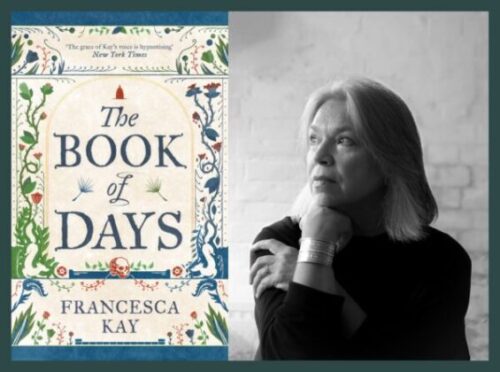Shortlist Spotlight: Francesca Kay
22nd May, 2025
The fourth author to feature in our series of Shortlist Spotlights is Francesca Kay, who tells us more about writing The Book of Days.
Q: How do you feel about being shortlisted for the Walter Scott Prize for Historical Fiction? Do you consider yourself an historical novelist?
A: I feel deeply honoured. It is a wonderful prize, and I am so delighted that mine is among the more than 160 novels it has celebrated in the years since it was founded.
I am not an historical novelist in the strictest sense of the term as my fiction is not always set at a specific time in the past. But The Book of Days is very definitely an historical novel.
Q: How did the people and times you write about in this novel first lodge in your imagination?
A: A medieval tomb in Ewelme has haunted me ever since I lived in that Oxfordshire village over thirty years ago. There lies Alice Chaucer, serene and beautiful in alabaster; below her, almost hidden, her emaciated corpse. She prompted my desire to explore a pivotal time in the history of England, when a child succeeded his father on the throne and the rhythms of ordinary life abruptly changed.
Q: What place does research have in your writing? When does the fiction take over from the facts?
A: Before I began to write this novel, I visited churches, studied tombs, paintings and medieval building techniques, read about folklore, saints, women’s lives, food, weather, farming, plants and flowers, and listened to the music of the time. And of course I read a lot of Reformation history. Then I put all my notes away and imagined myself to be then and there, in a particular place, at a particular time, ignorant of what would happen next. The facts in this book are as accurate as possible but my aim was to take my readers with me into the Tudor world and the mind of one young woman living then.
Q: Can writing about the past help us to deal with the present and think about the future?
The main reason for writing imaginatively about the past is to offer a way into the present, it seems to me. Otherwise, why not write facts? Fiction holds a piece of glass up to the light and invites us to look at ourselves through the refraction, to see the world differently, to consider the universal questions: where do we belong; what do we believe; how do we live; how do we deal with grief.

